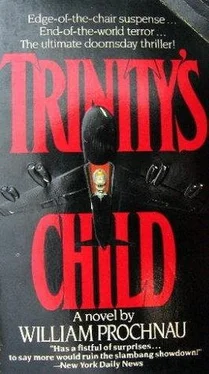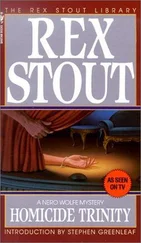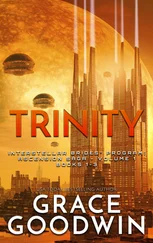“We’ll go down to the last drop, commander.” Elsie’s radio voice crackled but did not crack.
Kazaklis stared vacantly up at the tanker, briefly fixing on the ghostly vapor trails streaming out of her four engines. The exhaust poured out steel-mill-hot and then froze, snap, into ice-crystal fog faster than the eye could see. He remembered teenage jet trails that had seemed to go on forever. Now he had to watch them snap out again. “You got balls, Elsie,” he said, and only he seemed to notice the choke in his voice.
“No, commander,” Elsie replied. “They issued us everything but those. What we got, if you want to get schmaltzy, is our duty.” Then she added, with a wry chuckle, “And if you want to get technical, we got our orders—empty the pump, Polar Bear.”
“Okay,” Kazakhs acquiesced. The pilot could feel the anxiety building. Everybody was scared stiff, including him. “What’s your best fuel estimate?”
Elsie’s voice returned firmly. “Eight minutes. Ten minutes.”
“How do you plan to break away? Without power, you can’t go up and you could belly in on top of us. We can’t go up through you.”
“I ought to be able to hold it level for a moment,” Elsie replied. “If I can’t, I’ll nose it down slightly. If that doesn’t work, I’ll put it in a spin. Left. Got that? Left?”
Moreau had a nightmare vision of tangled wings. But she also knew what a spin meant to Elsie.
“Got it,” Kazakhs said.
“You put the brakes on and dive. Fast. Got that?”
Kazakhs paused and thought hard. Percentage baseball, he sighed silently. He switched to the intercom and radioed downstairs: “Keep your mother-lovin’ eyes peeled down there. We’ve got the window open and don’t need visitors.” Then he spoke to Elsie again. “We got it, Elsie. Your soul mate on my right will handle that part.”
Moreau looked at Kazakhs in surprise. He reached up slowly and pulled away the protective bandanna. Then he locked both eyes on the contrails from Elsie’s four engines and didn’t say another word. Nor did she, as her arms locked on the controls just as firmly.
Moreau last visited her father at Christmas, a month before the flight of Polar Bear One. It was a spectacular holiday of all-day skiing and crackling evening fires with rare steaks and rarer brandy high in the exhilarating alpine air of the Rockies near Steamboat Springs. He had retired there, with four stars, choosing the mountains because he loved them and Steamboat Springs because it was just near enough to keep his distance but also make his occasional lectures at the Academy in Colorado Springs.
It had not been an easy year for her. Finally, they had put her in a bomber where she was determined to be. Her father had sent congratulations, no more, when she got the assignment at Fairchild. Those first months had not been calm and she had lain awake night after night with pounding migraines for which she could not find relief because PRP would find the migraines. And then there was the men thing, the flamboyant, compulsive, self-destructive men thing which she had stopped, cold turkey, like a nun, a nuclear nun, almost a year ago.
So Steamboat Springs had been a tonic. Her father was in his sixties, the strands of iron gray turned to a sheath of steel. But he still stood ramrod straight, still forced her to her physical limits as they raced through the deep powder of this cold winter’s early snows. The only sign of age was in his eyes, the radiant blue having faded some, the riveting gaze occasionally drifting into a distant other world.
On the last day, they skipped the skiing, walked the snow-banked streets, stopped for Riesling and cheese in an overdone Swiss chalet, and then headed back to their A-frame condo.
The fire seemed brighter than last night, the brandy more heady. Moreau looked at the man, whom she worshipped and after whom she had patterned her life, and knew that if an oedipal complex existed for women, she had it. They both got a little giddy and a trifle silly as the fire burned down, the brandy taking them into the high clouds which provided such ecstasy for them both.
“Are you happy, Dad?” she asked suddenly.
His eyes turned perceptibly gray, and then moved away from hers to stare into the fire. “Happy?” he repeated, as if it were a question he never had been asked. “I suppose happiness is not one of the goals I set in life.”
“No. You only set one real goal, didn’t you?”
“Preserving mankind? Sounds terribly pompous now, doesn’t it?”
“No. No, it doesn’t. It sounds incredibly beautiful. Like you. And you gave that to me.” Moreau looked at her father and saw that not only had his eyes faded, but his face turned sallow and gray now, too. Her heart fell and she took her brandy snifter, clattering it loudly off his in an attempt to regain the silliness and giddiness.
“My God, you are something, old man,” she said brightly. “I could go for you. Did you ever think how remarkable it is we never thought of incest?”
Her father turned back toward her, some of the glitter returning to his eyes at the ludicrous perversity of the thought. “Well, Mo,” he said blandly, “you never brought it up.”
“Father!” she exploded in laughter. “You old bastard, you! The original male chauvinist pig! I never brought it up, huh? You old phony!”
They reached for each other in a bear hug that was sensual beyond measure, sexual not at all.
“Okay, we’ve practiced incest for almost thirty years now, Mo,” he finally said. “Incest of the mind.”
“Some people call it mind-fucking.” Moreau laughed, and her father withdrew again.
“I know,” he said, and the words were painfully forlorn.
“Hey, wait a second, Dad. Let’s start over.”
“I want you to stop, Mo.”
“Hey, hey, hey. I was kidding, Dad. You know that. Remember me, the skinny little kid with super-Dad?”
“I want you to stop flying. It isn’t going to work, Mo. We’re losing.”
Moreau sat in stunned silence.
“Not to the Russians,” he continued, “although this administration scares the be-Jeezuz out of me. Driving the Russians to the wall, where they’re most likely to lash out. But that isn’t it. We’re all losing. We’re losing to the bomb. It’s become too big, too pervasive, too matter-of-fact and ingrained. We’re failing, Mo. And you and I are the pawns. We always have been.”
Moreau stiffened.
“I don’t believe this. Not from you. Remember the ten-year-old kid you took to the Trinity site? Remember the lieutenant and his haunted scientists? Come on, Dad. Eternal vigilance. What’s the alternative? You said it yourself: the danger is in losing faith in ourselves.”
“Remember the initials at the McDonald ranch?” he asked.
“G. J. Loves J. J.,” Moreau answered noncommittally.
“The random event. Two kids who walked unseen past hundreds of Army guards, climbed over a six-foot fence past trip wires and sensors, crossed miles and miles of desert, probably with missile tests all around them. Two unknown kids we’ll never know. Into that room, not even knowing what it was. Probably had a six-pack of beer and screwed their eyes out. Carved their initials in Oppenheimer’s, wall and then walked back out again. The random, unlikely, impossible event. Part of the human cycle. And it’s going to get us. We’re going to lose.”
“I don’t buy that,” she said stiffly. “We made it through your life, while you carried the torch. We’ll make it through mine. And then the next. Just like you said. We’re like dry alcoholics, Dad. We can’t afford to fail. They take it one day at a time. We’ll take it one life, one generation at a time. Now it’s my turn.”
Читать дальше












